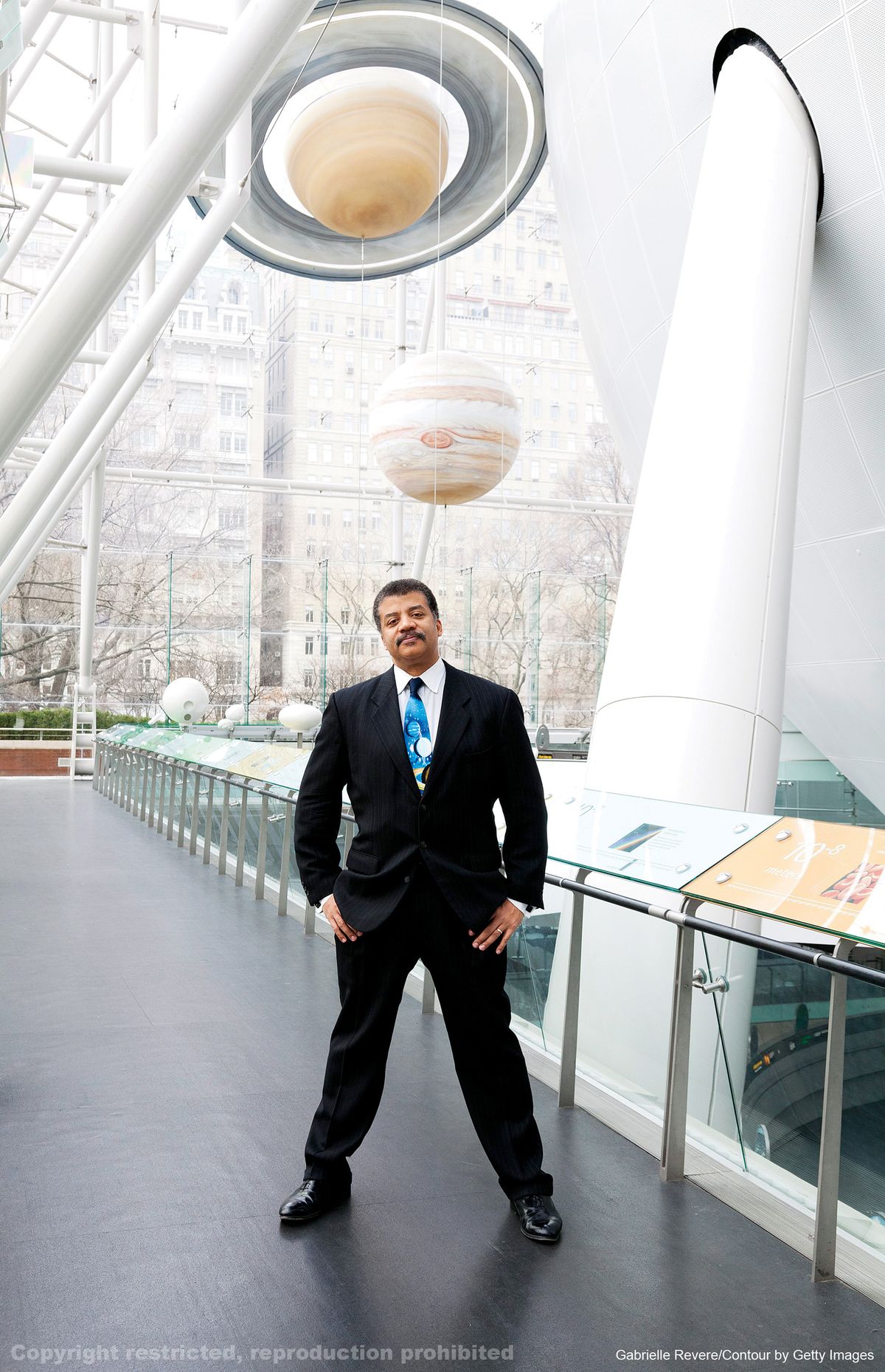'Share the Love': Neil deGrasse Tyson Urges Scientists to Educate Public

WASHINGTON — Astrophysicist Neil deGrasse Tyson wants his colleagues to get the world more excited about science.
Well-known for being both entertaining and informative, Tyson spoke to seasoned scientists and up-and-coming students here Monday night (Jan. 6) at the 223rd meeting of the American Astronomical Society about the best ways to interact with conventional and social media.
Tyson emphasized that many of the things that have endeared him to people outside of the field of astrophysics — such as "discovering" Superman's home planet Krypton, thereby making real science part of the superhero's lore — were easily replicable by his audience. [25 Most Iconic Superman Images]
"I'm not wielding any special knowledge here," he said. "Any one of us could have done it."
On fertile ground
Tyson addressed a rapt — and often laughing — audience of scientists and students for nearly two hours. Public interest in science is growing, he told the crowd.
"Science — and in particular astrophysics — is in the hearts and minds of the public right now," he said.
Sign up for the Live Science daily newsletter now
Get the world’s most fascinating discoveries delivered straight to your inbox.
Tyson pointed to the prevalence of science in comics and political cartoons. He flashed images of science-related tattoos on the screen to emphasize just how deep the interest had become.
"You gotta admit, we have the coolest images," he said. "People want to tattoo our stuff on their skin."
In the past, public interest in science has often risen due to prodding from politicians. The spotlight shone and funding flowed, but only briefly, because political winds are very changeable, Tyson said.
Today, however, people seem to be taking a growing interest in the subject on their own.
"I've done a lot of science for the masses, but it's landing on fertile ground," Tyson said.
Sound-bitten
In order to help the public continue to understand and enjoy science, Tyson urged his fellow astronomers to reconsider how they interact with the media.
He recalls his first televised interview, which he said he gave in his best professor-lecture style. At one point, he gave a demonstration of how a star "jiggles" as a planet orbits it. When he watched the news, only his dancing hips made the cut.
"I had been sound-bitten," he said.
At that point, he determined to take control of his interactions with the media.
The press thrives on sound bites, he explained. Scientists can either complain about it or go with it. Tyson decided to go with it. He spent time in front of a mirror perfecting sound bites on various subjects.
"Informative, tasty, and makes you want to smile a bit — that's the essence of a sound bite," he said.
Baking pizza on Venus
Tyson repeatedly emphasized the importance of explaining things in terms that people can understand and connect with.
The atmosphere of Venus, for instance, is often described as "hot enough to melt lead." But how many non-scientists have any experience with lead-melting temperatures? Instead, Tyson determined how long it would take to bake a pizza on the surface of the planet and used that as a field of reference. (The answer is 3 seconds; his original answer of 9 seconds was corrected by a physicist-turned-master-chef).
"When you hand people literally tasty things, they play with it," he said. They remember the information and make it a part of their life. Science is no longer something distant that they struggled with in school but something real.
Tyson also sees the value of participating in social media. For example, he has 1.5 million followers on Twitter, allowing him to reach many people very quickly.
"I think it's extraordinary that a scientist can have 1.5 million Twitter followers," he said.
Astronomers and other scientists have a special opportunity to educate the masses, Tyson said. He reminded the audience members that they have experiences and perspectives that the general public does not.
"We think stuff every day that is unthinkable to the public," he said. "Never take this for granted."
He encouraged scientists to share their knowledge with the public in fun and interesting ways.
"We all know [scientific facts], but we keep it to ourselves," he said. "Don't! Share the love."
Follow us @Spacedotcom, Facebook or Google+. Originally published on SPACE.com.












